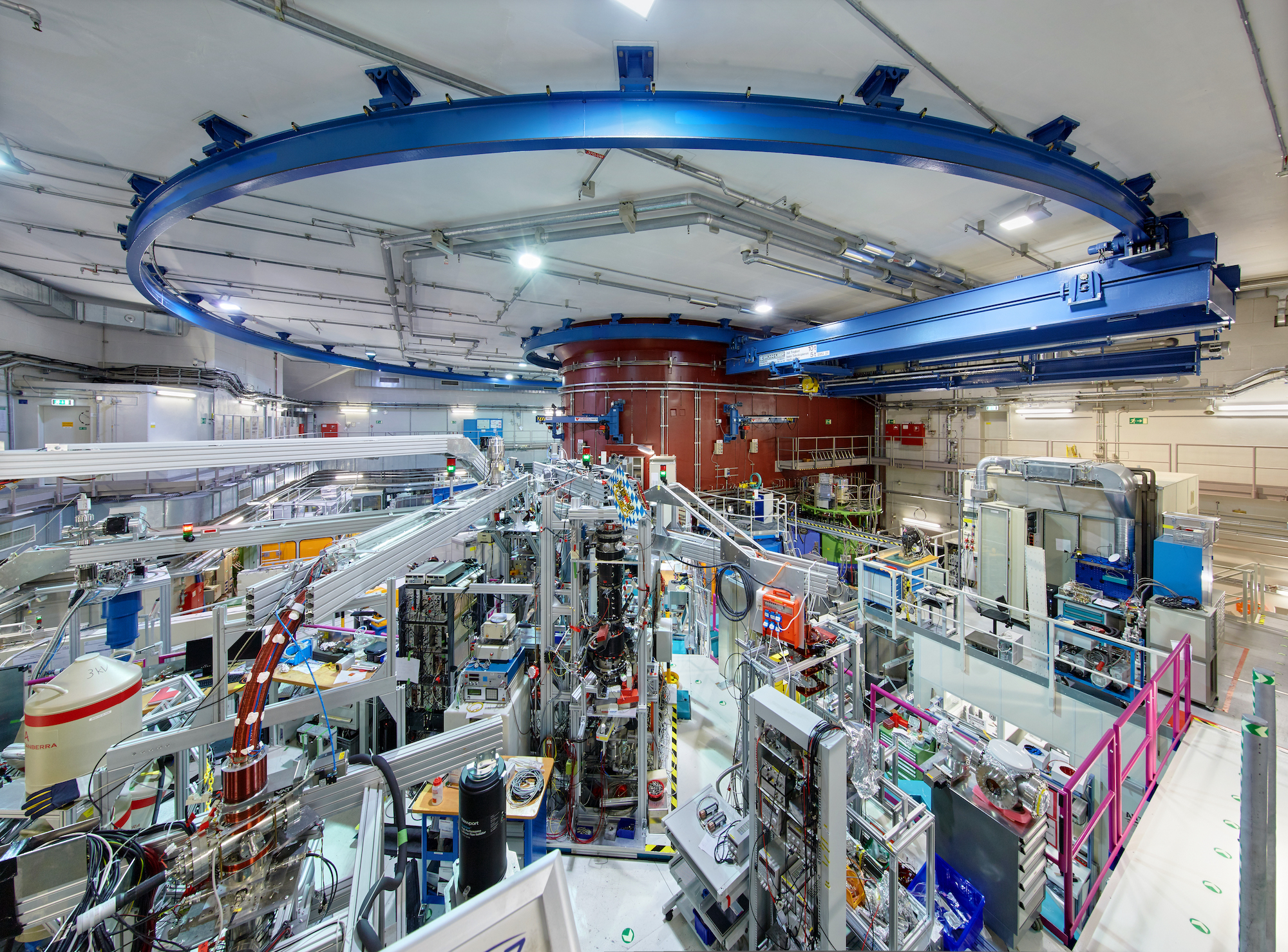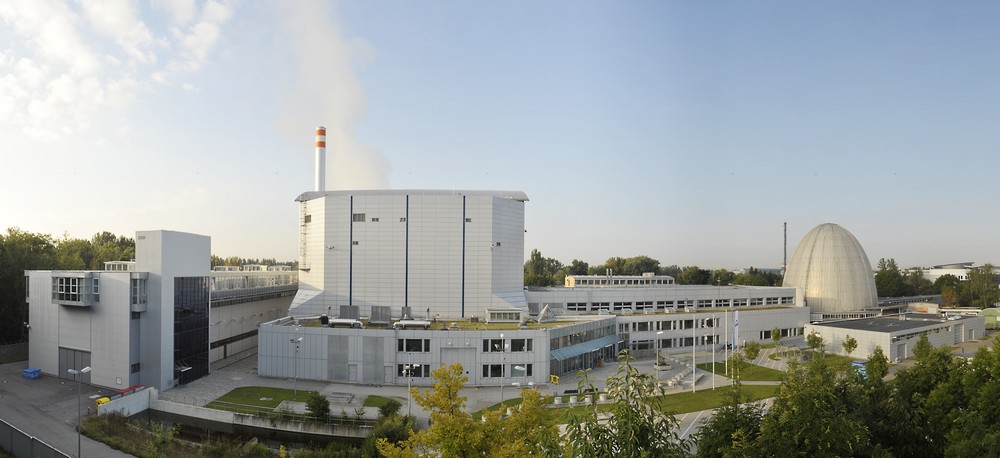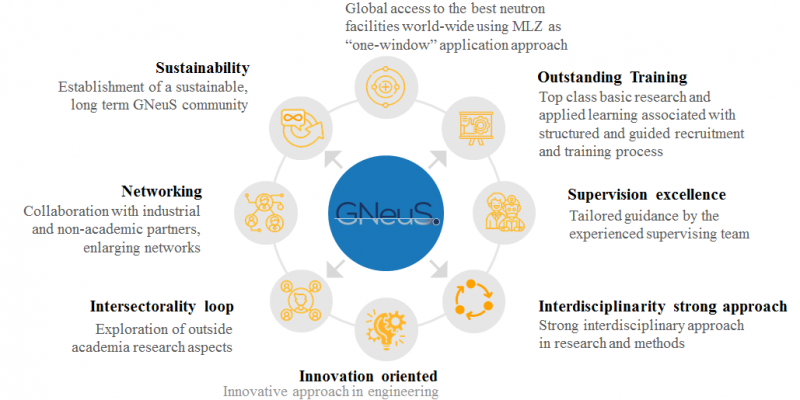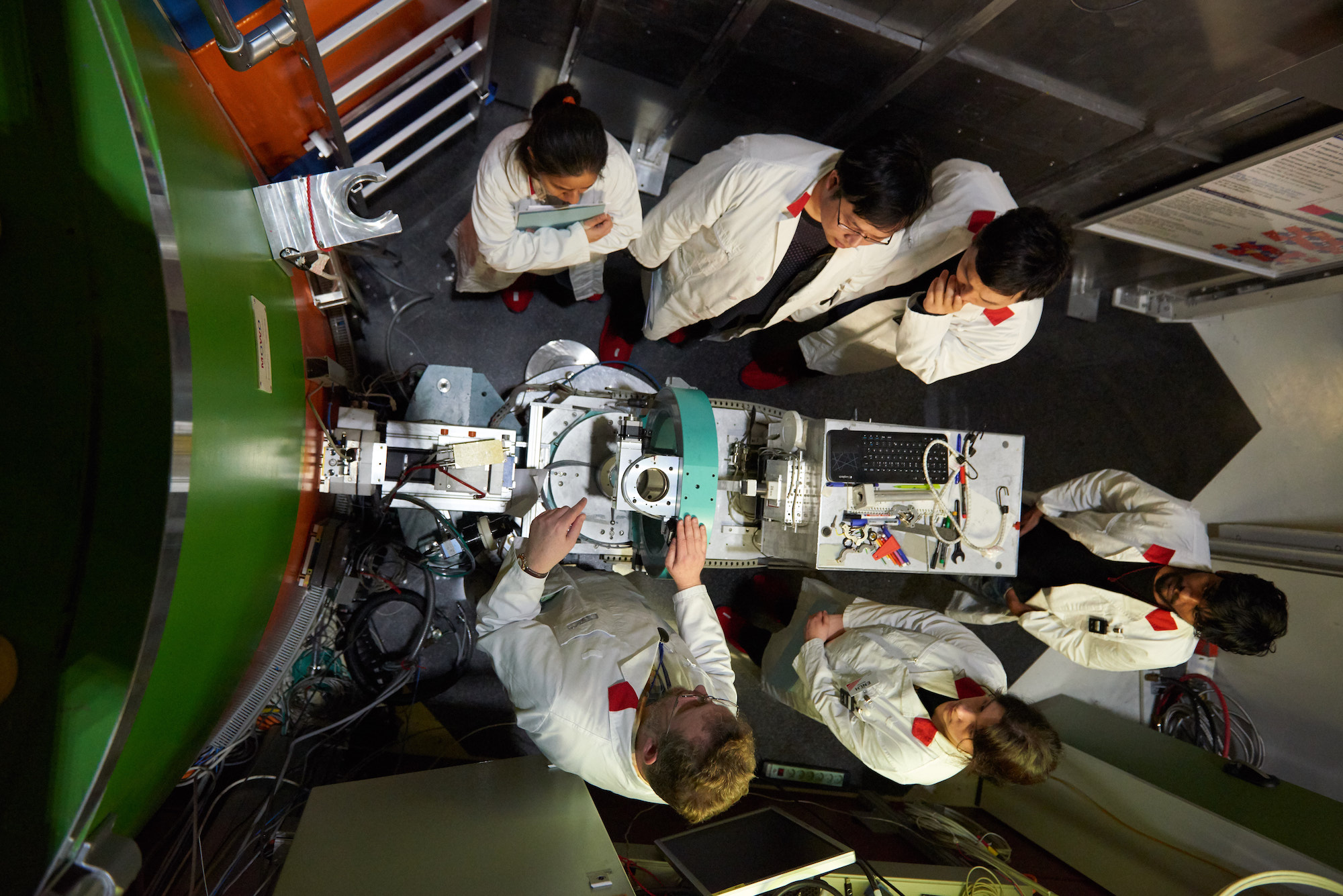Introduction
Research with neutrons, with its interdisciplinary approach, is indispensable for modern science. The neutron community is nowadays facing an important task to ensure long-term perspectives, that essentially depend on its ability to create a new generation of innovative highly-skilled researchers.
To tackle this challenge, Forschungszentrum Jülich (FZJ), the Technical University Munich (TUM) and the Helmholtz Zentrum Hereon (HEREON), partners at the Heinz Maier-Leibnitz Zentrum (MLZ), commit to train young neutron scientists through the establishment of a well-structured post-doctoral research programme. The programme offers a strong interdisciplinary and intersectoral approach and a global network in cooperation with the present and future world-leading neutron sources, such as the European Spallation Source (ESS).

Photo credit: Bernhard Ludewig, TUM

In order to maximize the outcome for fellows, the three MLZ partners join forces with 19 partner organisations (see partnering page) from around the world representing research, academia and industry. The GNeuS programme provides the best conditions for training of the next generation of neutron researchers, helping them to solve the grand challenges facing mankind in areas such as the environment, energy, key technologies and life sciences.
The GNeuS 5-year programme offers a total of 45 fellowships, in 3 different calls, each with a duration of 24 months, co-financed by the MLZ-partners (FZJ, TUM and HEREON) and the European Commission under the Marie Skłodowska-Curie Actions (MSCA) (link) programme (EU Grant N. 101034266). The MLZ partners act as hiring organisations and the non-hiring partner organisations will provide fellows with options for secondments.
The aim of GNeuS is to provide an excellent individually tailored training scheme to boost the career chances of the fellows, especially in terms of expanding knowledge and increasing long-term employability. The GNeuS programme will be based on “individual-driven mobility” to guarantee the fellows free choice of a research topic, host organization and supervisor.
Aiming to maximize the output for fellows and to fit their individual needs, the research programmes will be proposed by the fellows in a research area of their choice, based on the research fields of the MLZ-partners, described in the application materials.
Outstanding advantages of GNeuS in a nutshell are detailed below.


Photo credit: Wenzel Schürmann, TUM
Interdisciplinary research options, intersectorality and international networking
The GNeuS triple “i” mobility will lead to a hands-on research and training programme in neutron instrumentation, techniques and scattering to enable young scientists to pursue state-of-the-art research in different fields such as physics, chemistry, biology, earth sciences, engineering or material science, and to address the grand challenges of our time.
Applicants are invited to submit their applications taking into consideration the whole GNeuS offer, which includes academic, industrial, scientific, technical and other aspects. A successful application will have a balanced project of the different parts, taking into consideration its triple “i” (interdisciplinarity, intersectorality and international) mobility and the newly synergetic approach with the COFUND project InnovaXN.
Quality of career guidance and training
The GNeuS dedicated talent management programme will build upon Host institutions own programmes and will implement 8 activity types in order to give recruited fellows excellent conditions to promote them as future neutron leaders.

The GNeuS programme organisation
The organisational structure of the Project comprises the following Project Bodies as shown on the table below.
| Short Name | Project Body | Role in the Project | Composition | Meeting frequency |
| MLZ | MLZ Directorate | Scientific implementation | One representative (1) of FZJ, TUM and Hereon (the Partner Organisations) | Monthly |
| GB | Governing Board | Scientific and pedagogical matter | GNeuS Management Office,
One (1) representative per partner organisation, after the first call, three (3) representatives of fellows elected among the successful candidates every two (2) years. |
Annual |
| MO | Management Office | Report to MLZ and GB
Management of Supervision Team |
Programme coordinator, communication officer, financial officer, human resources
officer, industrial/technology transfer officer and the project assistant. |
Weekly |
| SP | Selection Panel | Decision-making body for the selection of the Fellow the call | Thirty-seven (37) external experts appointed by the MLZ Directorate subject to a Non-Disclosure Agreement and electronic verification of Non-Conflict of Interest Statement. | Selection stage of submitted proposals |
